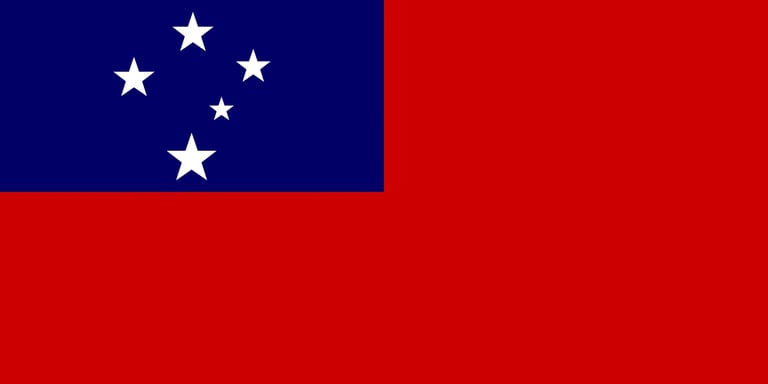Samoa
From Wikipedia


The Independent State of Samoa and known until 1997 as Western Samoa, is an island country in Polynesia, consisting of two main islands (Savai'i and Upolu); two smaller, inhabited islands (Manono and Apolima); and several smaller, uninhabited islands, including the Aleipata Islands (Nu'utele, Nu'ulua, Fanuatapu and Namua). Samoa is located 64 km (40 mi) west of American Samoa, 889 km (552 mi) northeast of Tonga, 1,152 km (716 mi) northeast of Fiji, 483 km (300 mi) east of Wallis and Futuna, 1,151 km (715 mi) southeast of Tuvalu, 519 km (322 mi) south of Tokelau, 4,190 km (2,600 mi) southwest of Hawaii, and 610 km (380 mi) northwest of Niue. The capital and largest city is Apia. The Lapita people discovered and settled the Samoan Islands around 3,500 years ago. They developed a Samoan language and Samoan cultural identity.
Samoa is a unitary parliamentary democracy with 11 administrative divisions. It is a sovereign state and a member of the Commonwealth of Nations. Western Samoa was admitted to the United Nations on 15 December 1976. Because of the Samoans' seafaring skills, pre-20th-century European explorers referred to the entire island group, including American Samoa, as the "Navigator Islands". The country was a colony of the German Empire from 1899 to 1915, then came under a joint British and New Zealand colonial administration until 1 January 1962, when it became independent.
Nassouh GSPI
Assessing global strength through various metrics.
contact us
gspi@nassouh.com
© 2025. Nassouh, All rights reserved.
